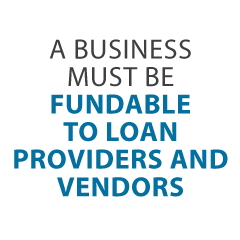What Are Business Calculators, and Why Do You Want to Use Them?
As a business owner, you have math flying at you all the time. But calculators for business will make that so much easier. These business calculators are all free and none of them use Adobe Flash. This is helpful, as this type of development is going out of style in web development these days.
Some, however, do require JavaScript, so be sure to enable that before you begin. It is no great mystery. These calculators for business can really help you run your business more smoothly.
Business Calculators: 1 – Cash Flow Calculator
One of the most important questions you should be asking is this one. Does my business have enough cash flow in order to keep it running. Because if your company runs out of available cash, then you could run the risk of not being able to meet current obligations.
Such obligations can include payroll, accounts payable, and credit card and loan payments. This calculator makes it easy to determine the cash flow being generated by your business.
You can enter your starting cash, your cash flow from operations, your cash flow coming from investments, and your business’s cash flow from financing. The calculator provides easy to follow explanations of terms, and even a report you can print.
Business Calculators: 2 – Break-Even Calculator
How many units of your product do you have to sell in order to make a profit? This is the essence of business, that is, when do you get to the good stuff, where you start making money? This calculator puts together a four-variable analysis, where you input your company’s expected unit sales, your fixed cost, your price per unit, along with your variable unit cost. Slide a bar or input a number in order to see what happens when you increase the price of your product or sell fewer units of it.
Business Calculators: 3 – Business Loan Calculator
Just what is that tempting business loan really going to cost you? Find out with this handy calculator. Input your loan amount and term, your interest rate and loan start date, along with your monthly payments. This calculator will show you different monthly payments if the numbers do not add up for you.
Find out what happens if you put in additional money every month or in an annual lump sum or a one-time payment. The amortization schedule is particularly satisfying, as you see the interest amount declining as time passes and more of the loan is paid off.
Business Calculators: 4 – Conversion Rate Calculator
Is your company doing business online? This calculator has been designed to give the conversion rate (CR) for anyone clicking on an advertisement and then buying. From a business owner’s perspective, conversion rate is a useful guide. It can demonstrate both the effectiveness of the advertisement and the product’s capability to sell. The figure is calculated by dividing the total number of purchases generated, by the total number of clicks.
Business Calculators: 5 – ROI Calculator
Return on investment matters. Otherwise, you will have no idea whether a particular investment is an example of money spent wisely. This ROI calculator figures an annualized rate of return using exact dates. Also known as Rate of Return (ROR), these financial calculators make it so you can compare the results of different investments.
You can even modify this one to determine whether you are getting a good return on advertising spend: just enter the amount spent in the Amount Invested section, and profit from sales in the Amount Returned section.
Business Calculators: First Bonus – Borrowing Power Calculator
Now, this one is actually meant for individuals. But with a little modification, it should do rather nicely for a small business. Just be sure to use revenue in the place of wages. The idea behind this calculator is to see how much you can afford to borrow. And pay back, of course. You can find it here.
Business Calculators: Second Bonus – Business Loan and Interest Rate Calculator
If you borrow money, then you should have a good idea of how much you are going to be paying in interest. So try this calculator.
Business Calculators: Third Bonus – Balance Sheet Calculator
This is a calculator which could technically be used for either an individual or a small business. Assets minus liabilities will tell you just how much cash you truly have on hand. You can find it here.
Bonus Section: Setting Up Your Business Bank Account
So, what are you going to be using all of these calculators for, anyway? There is every possibility that you will need to use at least the cash flow and business loan calculators in conjunction with your business bank account.
So why not set that account up the right way from the start?
5 Hacks to Set up your Business Bank Account
You’ve got a brand spanking new company. You’ve got customers. Plus, you’ve got expenses. And congratulations, you’ve got money. So, where do you put that cold, hard cash?
Please don’t say a mattress.
Instead, you need a business bank account, to keep funds separate from your personal accounts and to keep the Internal Revenue Service happy. Maybe that’s going too far. Let’s just say not unhappy.
 Hack # 1– Your Business Needs an Address
Hack # 1– Your Business Needs an Address
Your business needs a legal and a mailing address (these can be the same). Because business addresses are a matter of public record, you might want to keep an address separate from your home. The legal address is for service of process; talk to your lawyer about this and see what he or she thinks. You might be able to hire an agent to accept service for you.
Hack # 2 – Your Business Needs a Federal Tax Identification Number
Get yourself a business Federal tax ID number from the IRS. In order to open a business bank account at all, you are going to need one, so get this out of the way first. The IRS has a form for everything, including getting a Federal tax ID number. This is form SS-4. Once you have filled it out, you either mail or fax it to the appropriate office. The form contains this information. Getting a Federal tax ID number is free.
The IRS will usually send you (by mail) the number within about two or three weeks of receiving your form.
Hack # 3 – Your Business Needs a State Tax Identification Number
Get your business a state tax identification number for the state in which you intend to do business. You can find all of the states’ government information here. However, state websites differ; a random check of Massachusetts requiring visiting the Department of Revenue site, then clicking on Businesses and then selecting Registering, Filing and Reporting. On Louisiana’s site, it took some digging to find Form 16019.
Your state might have similar hoops to jump through, so be ready to spend some time searching or talking with a clerk. Our comprehensive post on how to set up a business in any state should be your first stop.
Hack # 4 – If you want to do Business under Another Name, You will need a Fictitious Name for Your Business
Looking to keep your business as a sole proprietorship or partnership but want to do business under another name (this is known as a DBA, which stands for doing business as)? Then you will need a fictitious name, and you will have to register your fictitious name with your city, county or state you can open a business account.
The costs of filing a fictitious name notice can range from $10 to $100. But don’t look at a DBA filing as ever being anything more than a steppingstone to incorporation.
Hack # 5 – To Accept Credit Card Payments, Your Business Needs a Credit Card Merchant Account
In order to be able to accept credit cards, you must set up a credit card merchant account. A merchant account makes it so you can transfer your customers’ credit card payments to the bank account you designate. Your start-up fee will range from about $50 to $200, plus monthly and per-transaction fees. You may also have to pay monthly statement fees, which tend to run from $4 to $20. There are also transaction fees; they are usually 5 to 50 cents/purchase.
A discount rate – the percentage charged/transaction – tends to vary from 1.5% to 3%. This figure is based on the volume of card sales, the degree of risk, and if you swipe cards at a brick and mortar store or you accept orders online.
Without a credit card merchant account, you can’t accept credit card payments. This is because you need that, plus a business bank account, and a means of processing payments.
An Alternative
Don’t want to set up a credit card merchant account? You can instead accept online payments such as PayPal. PayPal takes a small fee per transaction. It’s 0.7 to 2.9% of the transaction plus 30 cents per order, depending on your company’s sales volume.
Business Calculators: Takeaways
Business calculators can help you run your business more easily. Why reinvent the wheel, when you just plain do not have to?
Make your life easier by effortlessly calculating some of the most important numbers in your business with these great business hacks and calculators.

